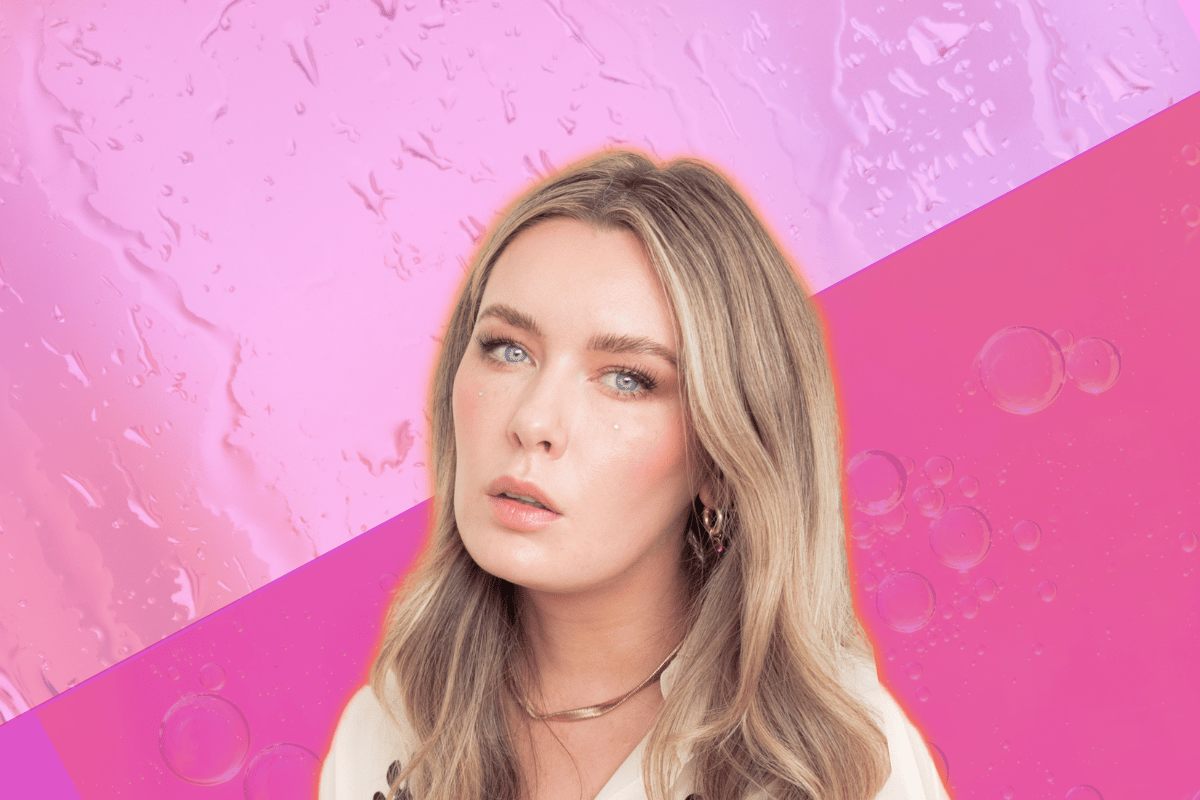
Hannah English is a beauty writer and content creator with a background in pharmaceutical research. Hannah has built a niche in the beauty industry around her passion for making science feel cool, relevant, and accessible.
Like many teens, Hannah grew up with acne and low self-esteem. The small number of solutions available influenced her to study pharmaceutical science to help guide the new generation struggling with acne and other skin issues.
In this session of Mamamia's The Skin Summit, Hannah speaks with the host of Mamamia's You Beauty podcast Sharon Hunt about all things retinol.
What is retinol and how does it work?
Hannah English: Retinol is a form of vitamin A, so it's something that our body is familiar with and knows how to use. It's also involved in a few processes in our skin and in our body. In your skin, vitamin A influences gene expression to create more collagen. It also influences oil production, and the way your skin cells turn over.
What are the skin concerns that retinol can help out with?
Hannah English: The collagen that retinol helps to create can help plump out and minimise fine lines or other types of skin texture. If you're concerned with the visible size of your pores, it can help with that too. It also helps with all things breakouts, and any changes in the appearance of your skin as you live your life and get older.
What is the right age to start using retinol?
Hannah English: You can use retinol for breakouts at any age. So, if you're getting breakouts, then off you go. But, if you're looking at it for textures, I think mid-20s would be a good time to start.
How do you integrate retinol into your skincare routine?
Hannah English: My philosophy has always been that if you use too much too fast, then you might have some adverse effects. So always go low and slow. Use a low percentage retinol product, use a small amount, and integrate it into your routine slowly.
I suggest starting using retinol once a week with a pea-sized amount of whatever product you're using. You can even use it over a moisturiser at first if you're extra sensitive, or if you're worried about getting skin irritation.
After a month, once you've observed how your skin behaves the day after using retinol, then you can up it to two nights a week and see how you go from there.
Can you overdo using retinol?
Hannah English: If you use too much, your skin could begin stinging or flaking or even a little bit tight. That's an indication that something worse might be coming if you don't dial it back.
How many days per week should you use retinol?
Hannah English: I think it depends on the person and the product. I know they often say to use it twice a week in your 20s, three times a week in your 30s, and four times a week in your 40s. But I don't think that allows for the wide range of different products on the market and how strong or gentle they are. It's really up to you, but I'd say five nights max.
What is the difference between retinol and retinoids?
Hannah English: So, technically, retinoid means Vitamin A. So, you might say retinol, retinaldehyde, or retinoic acid, - they all convert into each other in your skin and your body, anyway. And then there are gentler ones, like retinol palmitate. They're not exactly the same, but the end result is the same. The difference is just a matter of the speed you get to those results.
Why do some retinol products need a prescription?
Hannah English: The really strong ones require a prescription. By being prescribed by a doctor, it gives them a chance to walk you through how to use the product correctly and carefully.
What products can you use together with retinol to maximise the results?
Hannah English: Niacinamide is a really nice one to pair with retinol because it helps to strengthen your skin barrier. You also want to use products that give back to your skin, like hydrating serums and moisturisers. If you think about each skincare product, you want to ask yourself, 'Does this give back to my skin or does it take away from it?' You want to pair retinol with lots of things that give back to your skin.
What products should you not use with retinol?
Hannah English: It's best not to use it with acids, like exfoliating acids, glycolic acid, lactic acid, salicylic acid, etc, just because those products can be challenging for your skin. You just don't want to take it too far.
Is retinol a morning product or an evening product?
Hannah English: It's recommended to use it in the evening. It's not that you can't do it in the morning, it's just that it's better suited to use overnight. That's when your skin is in repair mode, and it's in building extra collagen mode.
When can you expect to see the results when using retinol?
Hannah English: I really noticed the results in about six months, but it really depends on the person. Overnight, you'll see a little bit of smoothing. In a month, you might see a bit of changed texture. And in three months, it would have significantly helped with breakouts, more even skin tone, and diminished fine lines.
Did you miss The Skin Summit presented by Mamamia? Get on-demand access to the best skin experts in the world. Whether you love nerding out over a 12-step skincare routine or still use a bar of soap, the summit is the secret to the best skin of your life. Streaming directly to your couch. Catch up on-demand here.
You can follow Hannah English on Instagram and TikTok @ms_hannah_e. You can also find her on Twitter @hannaheenglish.
Feature Image: Mamamia.
